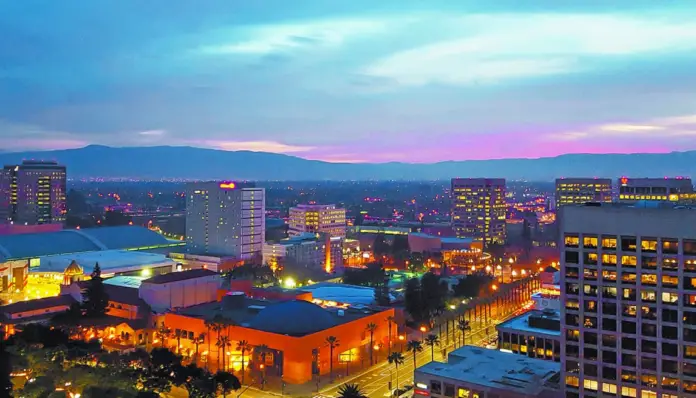
With record figures in all its economic indicators, the attraction of 12,000 million dollars of Foreign Direct Investment (FDI), exports for 30,000 million dollars and the generation of 250,000 formal jobs, the current economic cabinet of Jalisco will close its administration under the coordination of businessman Xavier Orendain de Obeso.
He explained that this is the FDI figure corroborated by the federal Ministry of Economy, although due to the fact that many companies established in Jalisco have their fiscal domiciles in Mexico City, the investments are not accounted for in this entity.
“Companies were urged to establish their fiscal domicile here and there was some success; GAP established itself here, Diageo established itself here and that is why the United Kingdom appears as one of the main investing countries, but there are many more companies that have their fiscal domicile in Mexico City and the investment counts there,” he said.
One month after leaving office, the state’s general coordinator for Economic Growth and Development shared with El Economista that of the total FDI in the current six-year term, 2.8 billion dollars and nearly 40,000 jobs correspond to the high-tech industry, which is why, he stressed, “Jalisco is confirmed as the Silicon Valley of Mexico and Latin America and reaffirmed as the capital of semiconductors in Latin America.”
Interviewed at the end of the third promotional tour in San Jose, California, and on the eve of the sixth and final report of Governor Enrique Alfaro, the coordinator of the economic cabinet indicated that the visit made last week by businessmen and representatives of the outgoing and incoming state governments to the technological companies of Silicon Valley, generated investment commitments of 890 million dollars and the creation of 11,500 new jobs for the next 12 to 18 months.
“These 890 million dollars include the investment of ASE Group, which will install a plant for the assembly, testing and packaging of semiconductors (ATP, for its acronym in English) in Jalisco. This company is the largest Taiwanese in these processes,” said the state official.
They pose challenges
The president of the Association of the Maquiladora and Export Manufacturing Industry (Index) West, Guillermo del Río, indicated that in the promotional tour in which the Productive Chain of Electronics (CADELEC) and the National Chamber of the Electronics, Telecommunications and Information Technology Industry (Canieti) also participated, the CEOs of the technology companies presented their growth plans, the challenges and infrastructure demands to continue growing their investments in the state.
He said that 60% of the investment announcements correspond to manufacturing companies that are already established in Jalisco, and the rest are new companies that come to invest in the region.
“We have companies that are dedicated to design or that have laboratories, we have software development projects, process development and the manufacturing of high-tech products,” said Del Río Ochoa.
Supply
The president of CADELEC, Ramón Romero, indicated that one of the great challenges, in addition to the generation of qualified talent, is to further develop the supply chain in order to attract more investments to the region.
“We have to develop new capabilities in the state; we cannot stay only in what is packaging, manuals and labels; we have to develop more the metal-mechanical, plastics issue and as soon as semiconductors begin to arrive, we have to get on that ship,” Romero explained.
For his part, the next coordinator of Economic Growth and Development, Mauro Garza, highlighted the need for companies of American origin to increase the availability of qualified talent and energy infrastructure in order to grow their projects.
Public-private partnership
According to the president of Index, investors see a great advantage of Jalisco as “a very close-knit ecosystem” in which companies, government and academia collaborate.
Regarding the positive results in the coordination of the economic cabinet as a businessman and former president of the Chamber of Commerce of Guadalajara, and regarding the participation of another businessman such as Mauro Garza who will succeed him in office, Xavier Orendain de Obeso said that the participation of the business sector in the government is positive to promote the economic growth and development of the state of Jalisco, as long as, he pointed out, the cabinet remains in a technical area and with a business-academic focus.
“The challenge is to find businessmen who have the vision of giving back to their state; who do not come to serve themselves, who do not come to do business within the government,” he emphasized.
Source: eleconomista






